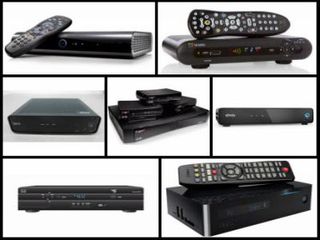Obama’sSupport of STB Plan Adds to ‘Overhang’ on Cable Tech Stocks

The White House’s public backing of FCC Chairman Tom Wheeler’s plan to create new rules aimed to open up the retail market for set-top boxes adds to the “overhang” faced by Arris and other cable equipment stocks, but won’t necessarily make a material impact on them, an industry analyst believes.
President Obama’s support of the plan didn’t wreak havoc on shares in Arris, now the world’s largest set-top box maker following its 2014 acquisition of Motorola Home and the recently completed merger with U.K.-based set-top maker Pace plc. Shares in Arris closed at $22.19 on Friday, down 31 cents (1.38%) for the day.
Despite the additional overhang caused by the announcement, “we also continue to see the news as more of a headline risk, rather than a material financial headwind,” Simon Leopold, analyst with Raymond James, said in a research note on Friday. “Set-top-boxes make for an easy political target, since it is not uncommon for consumers to grumble about rental fees, however we believe that consumers would not necessarily embrace the alternative of shelling out hundreds of dollars every few years for the latest STB either.”
Leopold also said implementation of any new set-top rules would be challenging as “producing universal set-top-devices that conform to all of the technologies could prove tedious and add complexity to consumers in terms of configuration and compatibility with their service provider's network.”
He’s also skeptical of the FCC’s ability to mandate such changes and expects to see the issue go to court, and pointed to historic shortcomings with the CableCARD regime (about 55 million of the modules have been deployed in MSO-supplied boxes by the top nine incumbent U .S. MSOs, versus 589,000 in retail devices, per the NCTA's latest report), and that about 14.5% of Time Warner Cable’s customers opt to buy their own cable modems.
BTIG analyst Richard Greenfield also weighed in on Obama’s backing of Wheeler’s set-top plan, calling it a win for consumers, a positive for OTT providers, and a negative for programmers (in part because more integration of OTT will present more risk to linear TV ratings) and MVPDs.
“MVPDs make money on leasing boxes and selling video packages. While the near-term impact will be less revenue from leasing boxes (offset by not having to finance building boxes to lease), the longer-term risk is the acceleration in cord-shaving/cutting/nevering reducing profits on its video service,” Greenfield wrote in a blog post (registration required).
Multichannel Newsletter
The smarter way to stay on top of the multichannel video marketplace. Sign up below.
On the other end of it, a shift to IP-based devices from third parties could also produce costs savings for MVPDs with respect to truck-rolls and customer service rep time, he added.
